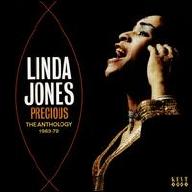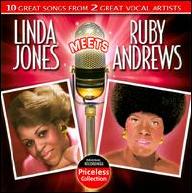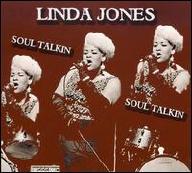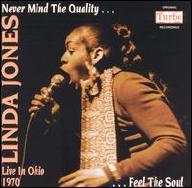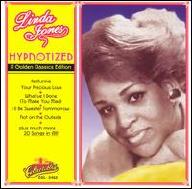Linda's fortunes improved when she met George Kerr, a producer and songwriter who had been a member of Little Anthony the Imperials. The first two singles Kerr produced for Linda Jones (one on Atco, the other on Blue Cat) fared no better, but in 1967 they landed a deal with Loma Records, an R&B imprint of Warner Bros., and her first 45 for the label, "Hypnotized," was a hit, rising to number 21 on the Pop Singles charts and number four on the Rhythm & Blues survey. The single prompted the release of Jones' first album, also called Hypnotized, and Jones' follow-up, "What've I Done (To Make You Mad)," was a Top Ten hit on the R&B charts, but struggled to 61 on the Pop listings, and 1968's "Give My Love a Try" was a greater disappointment, struggling to number 34 R&B and a dismal number 93 on Pop. While "Hypnotized" found Jones taking a relatively subtle approach to her music, her subsequent sides captured her forceful, melismatic style at full strength, and though soul purists (especially Northern soul collectors in the U.K.) treasured her records, she was a bit too much for Top 40 to take, and Jones would never have another major pop hit.
In 1968, Warner Bros. shut down Loma, and briefly bumped Jones up to their flagship label, but after one single, Jones was a free agent again, and she briefly recorded for Neptune Records, an early label run by Philly soul legends Kenny Gamble and Leon Huff. In 1971, Jones landed a new deal with Turbo Records, an offshoot of Sylvia Robinson's All Platinum label, and in 1972, Jones enjoyed her greatest success in four years when her forceful, gospel-leaning cover of Jerry Butler's "For Your Precious Love" made its way on the R&B charts, peaking at number 15, and even enjoying some Pop airplay, where it rose to number 72. Sadly, Jones' comeback would be short-lived. Jones, who struggled with diabetes, toured hard in support of "For Your Precious Love," and she was booked to play two shows at New York's famed Apollo Theater on March 14, 1972. After a matinee performance, Jones went to her mother's house in Newark to eat dinner and take a nap before playing her evening show, but when her mother tried to wake her, she discovered Linda had slipped into a diabetic coma; she died shortly afterwards. Turbo released a pair of posthumous albums following Jones' unexpected death, and in 2014, Real Gone Music released The Complete Atco-Loma-Warner Brothers Recordings, bringing together the bulk of her recordings of the '60s. ~ Mark Deming, Rovi


